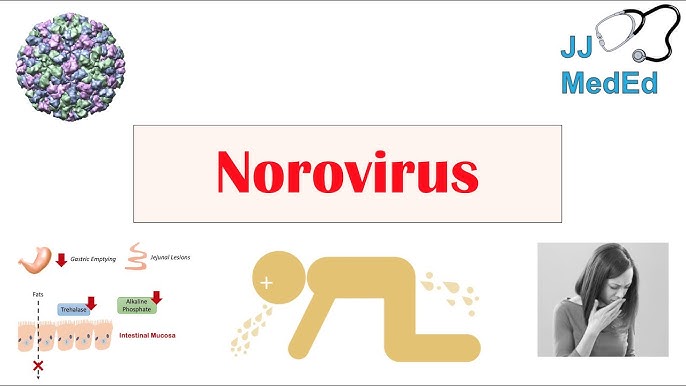Experts Comment On The Norovirus

Norovirus, often referred to as the “winter vomiting bug,” is a highly contagious virus known for causing gastroenteritis. It’s a member of the Caliciviridae family, which includes several viruses that affect humans and animals. Norovirus is notorious for its ability to spread rapidly and cause outbreaks in various environments, from schools and hospitals to cruise ships and nursing homes. Its resilience and ability to survive on surfaces contribute to its widespread transmission.
Why Norovirus is a Concern:
Norovirus presents several challenges due to its high contagiousness and the severity of symptoms it causes. Outbreaks are common, especially in crowded settings like schools, hospitals, and cruise ships. The symptoms, including diarrhea, vomiting, nausea, and stomach cramps, can be severe and lead to dehydration, particularly in vulnerable populations.
How Norovirus Spreads:
“Norovirus primarily spreads through the fecal-oral route, meaning it’s transmitted through contaminated food, water, or surfaces. Direct contact with an infected person or inhaling aerosolized particles from vomit can also spread the virus. Norovirus can survive on surfaces for extended periods, contributing to its spread”. Says, Makenna Francsis, PMHNP at American TMS.
Preventing Norovirus Infection:
“Preventing norovirus infection involves several key practices. Regular handwashing with soap and water, especially after using the bathroom or before preparing food, is crucial. Disinfecting frequently touched surfaces and practicing proper food hygiene are also essential. Infected individuals should stay home to prevent spreading the virus, and staying up-to-date with vaccinations can reduce the risk of complications”. Says, Dr. Sarah Rahal, a board-certified neurologist, and the CEO + Founder of ARMRA.
Norovirus Symptoms and Treatment:
“Symptoms of norovirus infection usually appear within 12 to 48 hours of exposure and can last for 1 to 3 days. They include diarrhea, vomiting, nausea, and stomach cramps. While there’s no specific treatment for norovirus, managing symptoms with rest and hydration is important, especially in severe cases”. Says. Dr. Gregg C. Fonarow, American Heart Association expert volunteer and interim chief of UCLA’s Division of Cardiology
Information About Norovirus:
Norovirus infections are more common in the winter months, but they can occur at any time of the year. Certain groups, such as the elderly, young children, and immunocompromised individuals, are at higher risk of severe complications. Norovirus can survive on surfaces for weeks, emphasizing the importance of proper cleaning and disinfection in preventing its spread.
Conclusion:
Norovirus is a significant public health concern due to its high level of contagiousness and the severity of symptoms it induces. Its ability to spread rapidly in various settings makes it challenging to control outbreaks. However, by adhering to good hygiene practices, maintaining food safety standards, and staying informed about preventive measures, individuals can play a crucial role in reducing the risk of norovirus infection and effectively preventing outbreaks within their communities.



